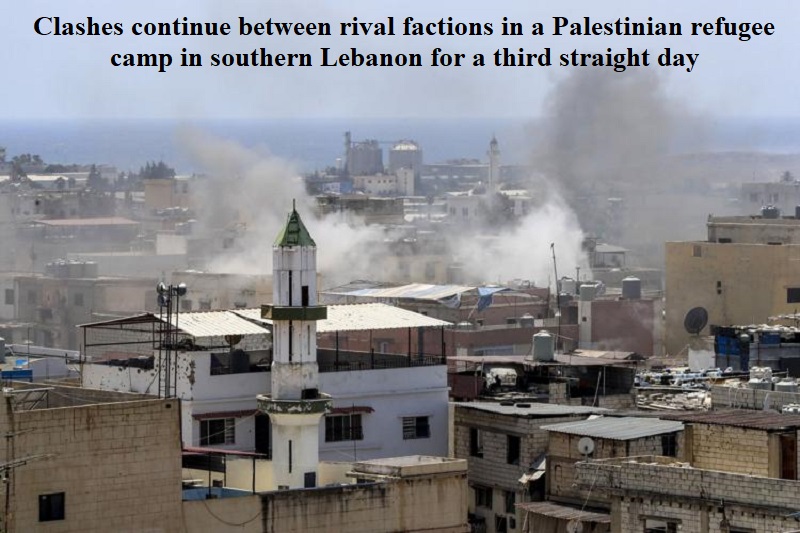
Clashes between rival factions in a Palestinian refugee camp in southern Lebanon have persisted for a third consecutive day, resulting in the deaths of 11 people since the fighting began last week.
The Ein al-Hilweh camp, which is the largest Palestinian refugee camp in Lebanon and accommodates over 63,000 people, has been the epicenter of the clashes ever since the leader of the Fatah faction and four of his bodyguards were killed by another Palestinian group.
Despite a Lebanese lawmaker announcing a ceasefire on Monday, sporadic gunfire has continued, further exacerbating the tension. On the same day, thousands of mourners gathered in the region for the funeral of Abu Ashraf al Armoushi, who was gunned down.
In the aftermath, Fatah released a statement denouncing the “abominable and cowardly crime,” stating that it was intended to undermine the “security and stability” of the Palestinian camps in Lebanon.
According to a Fatah commander quoted by The New York Post, his side was attempting to surround the Islamist group known as Jund al-Sham. Although Fatah has previously clashed with Jund al-Sham, experts believe that the stakes are higher this time.
These clashes have occurred against the backdrop of rival Palestinian groups, including Fatah and Hamas, engaging in reconciliation talks in Egypt to advance Palestinian national unity.
A UN report indicates that most inhabitants of the Ein al-Hilweh camp are Palestinians whose ancestors were displaced from their homes in 1948 after the establishment of Israel. Since then, clashes between rival groups over the administration of the camp have been a recurring phenomenon.
In 2017, massive fighting erupted in the camp after a joint security force, formed with the aim of preventing clashes between rival factions, was disbanded, resulting in nearly 20 deaths and dozens of injuries.
Lebanese Prime Minister Najib Mikati deemed the timing of the clashes “suspicious in the current regional and international context,” denouncing attempts to use Lebanon as a battleground for settling external disputes at the expense of the country and its people.
Dorothee Klaus, the director of UNRWA in Lebanon, called on all militant parties to ensure the safety of civilians and respect the inviolability of UN premises, as the clashes have damaged two schools run by the UN agency.

Post Your Comments